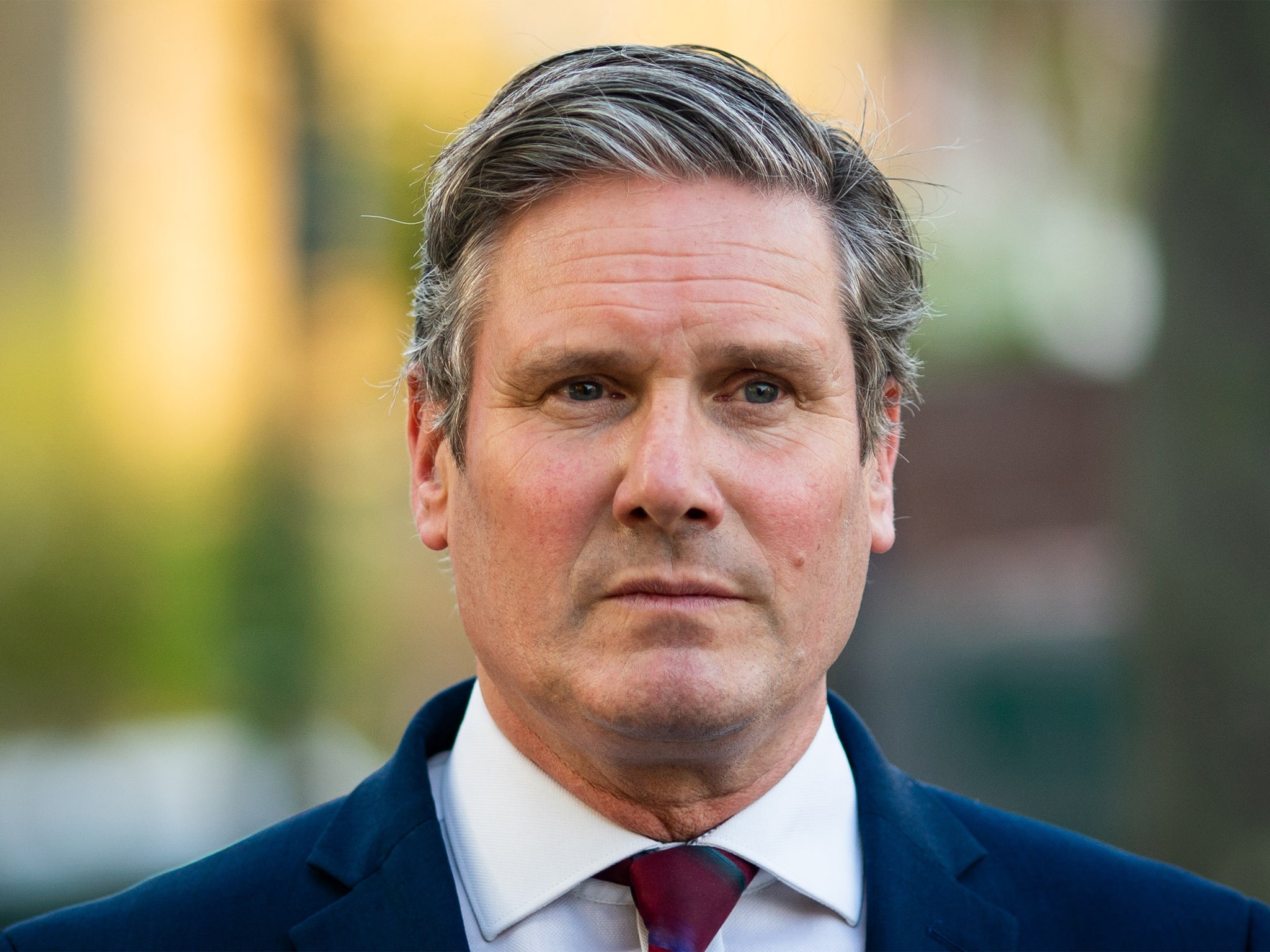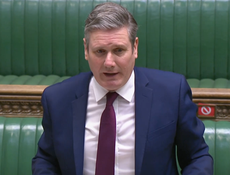What does the future hold for Labour under Keir Starmer?
The leader of the opposition is slipping in the polls but his supporters shouldn’t be fearful just yet, writes Sean O'Grady


Just because “a mountain to climb” is a terrible cliche doesn’t necessarily mean that Keir Starmer was wrong to use it. The question remains, though, as to whether Sherpa Starmer is the right man for the assault on political K2.
Starmer is coming under some renewed attacks from the left. The socialist tendency believes he is squandering the gains made in the Corbyn years (yes, really). Richard Burgon, secretary of the Socialist Campaign Group of Labour MPs, and a former marginal contender for the deputy leadership has issued this scarcely coded warning: “Many feel our leadership has taken the fight to its own members more than it has to a Tory government responsible for one of the worst coronavirus death rates in the world.”
Of course, Starmer might well point out that he’s been on the Covid story for a year. And he might ask why Burgon and his allies are taking the fight to their leader rather than the wicked Tories. Starmer may also conclude that being attacked by Burgon suggests that the party is going in the right direction.
Some MPs, the leadership of the Momentum group of activists and the Unite trade union are demanding an emergency Labour conference, presumably on Zoom. Starmer’s reply to this is that the party has better things to do, and anyway, under his leadership, the party has made up a 24-point deficit in the opinion polls, he has had to pick up the pieces after the worst general election result since 1935. He is proud that he and his team have managed to drag Labour back to roughly level pegging with the Conservatives, and that for much of the Covid crisis Starmer’s personal ratings have been higher than Boris Johnson’s (particularly after the Dominic Cummings affair).
The fact, however, is that both Labour and Starmer’s poll ratings have slipped in recent weeks, and you don’t have to be Professor Sir John Curtice to see why. Despite a perky performance for the Greens, the change in fortune is not down to some sudden nostalgia for the radical agenda of Jeremy Corbyn, but rather the outstanding success of the British vaccination programme. The prime minister can hardly be kept out of the vaccination centres with TV crews in tow, and for once he managed to remember the first rule of spin: he underpromised and over-delivered.
The PM has had quite the boost himself from all these jabs, and there’s not a lot Starmer or anyone else can do about that. The public – aside from its frustrations over the Cummings affair and other egregious errors of judgement – always seemed inclined to give the government some benefit of the doubt, buying the line that it’s working hard in trying circumstances.
The various grim anniversaries and milestones of death, extensively covered by the media and hammered home by the Labour front bench, don’t seem to have triggered a wave of revulsion among swing voters. It is also fair to point out that both Corbyn and Starmer seem helpless in the face of Labour’s collapse in Scotland, significantly damaging the party’s chances of forming another majority government this century. At the moment, Labour doesn’t actually have a leader in Scotland, nor much hope for the party, even as Nicola Sturgeon and the SNP are entangled in an incomprehensible but damaging procedural row. The new leader will arrive too late to make any impact at the forthcoming Holyrood elections: that may turn out to be Labour’s biggest missed opportunity of 2021.
There are grumblings about members of the shadow team, but you can’t fault their work rate. This week the Labour press office has been pumping out the messaging at the usual relentless pace: Stephen Kinnock was responding to escalating violence in Myanmar; Jonathan Ashworth wants more vaccinations; Andy McDonald thinks Covid-19 is a serious workplace risk; and Angela Rayner is demanding Matt Hancock returns donations from the reliably batty Institute of Economic Affairs. All that followed Rachel Reeves’ big push on cronyism and corruption. At the moment it’s probably too early to expect the electorate to pay much attention to what shadow ministers have got to say.
Starmer, then, might also gently remind his party that it is still three or four years from the next election, and Labour cannot expect to regain ground lost over a decade inside a year, and there wasn’t much to build on after 2019. Corbynite loyalists still look back to the 2017 election shock when they took Theresa May’s majority from her – but more and more it seems a false dawn than the dawning of the Age of Aquarius.
It may not yet have sunk in for some Labour circles that the Old Etonian Johnson attracted more working-class voters than Corbyn. The phrases “Conservative MP for Sedgefield” or “Conservative MP for Bolsover” do seem unreal, but Paul Howell and Mark Fletcher really do represent seats once held by Tony Blair and Dennis Skinner. The Conservatives now claim to be the people’s party and the people’s government.
The leaked Labour focus group research indicating an unhappy cultural divergence between party and people means that winning in 2024 will take more than a shadow cabinet reshuffle or an emergency conference featuring some fruity rhetoric about nationalising the trains.
If Labour becomes split over EU policy, Brexit, the biggest cultural driver of all, may turn out to be the gift that keeps giving to the Conservative Party.
In May there will be elections across Britain, some postponed from 2020; “real votes in real ballot boxes” as the politicians like to say. Mayoral contests in London, the midlands and northern cities; for the Scottish and Welsh parliaments, for county councils. It will be like a mini general election, and the results will take time to interpret. A lot can still change between now and then, but if the vaccination programme continues to go well and the lockdown restrictions start to ease, then Johnson may well get his post-Covid, post-Brexit bounce. Labour will be unlucky to make no progress on the 2019 election, but Starmer and his party will still be much closer to base camp than the summit.

Join our commenting forum
Join thought-provoking conversations, follow other Independent readers and see their replies
Comments